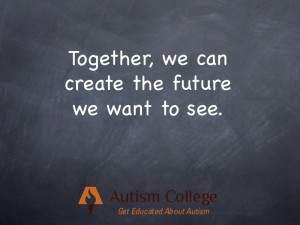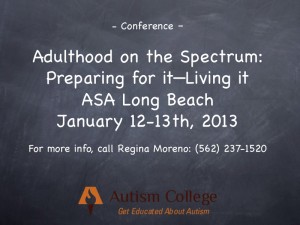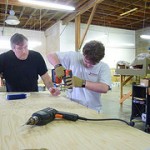Two caregivers were arrested this past week in Valley Center (near San Diego, CA) for allegedly abusing a severely autistic non-verbal young man in his home. They had been in the family’s employ for over two years and were caught on videotape over a three week period.
This is a parent’s worst nightmare come true; and if it’s a nightmare for the parent imagine what it is like for the victim.
According to reports in the media, the mother, Kim Oakley, saw changes in her son, Jamey, indicating he appeared to be unhappy on the days following the men’s shifts. Kim also realized Jamey was trying to communicate something to her. When she questioned the caregivers, “They blamed everything on his severe autism,” according to newspaper reports. Kim set up a surveillance camera after noticing that the wires to a baby monitor had been cut. Videos shot over a three week period led to the arrests.
My heart goes out to Kim and Jamey and the rest of the family. Unfortunately their story is not unique and it highlights the difficulties of all families requiring caregivers and support staff for their severely autistic loved one.
How often do we hear about a non-verbal person that “his behavior is due to his autism”? Bull! All behavior is communication and Kim, like most moms and dads, know this. Watch “Autistic Cases ‘Autism Experts’ Run From” that Kim Oakley posted on YouTube. Jamey’s behaviors in this video were particularly bad because he had a Urinary Tract infection and once it was diagnosed and treated, he was better. But is took five days to get it taken care of.
Recently my autistic son Jeremy was in so much pain that he became hyper and aggressive and kept trying to take showers as if that would help. Nothing could calm him down. We had never seen anything like it before. He was uncontrollable. We were lucky he could type and tell us he was in pain. But it also took five days to figure out why he was in pain, and a week to be able to do anything about it. Turns out is was due to a change in the generic brand of his medication for epilepsy – we were not warned that any changes in the brand could cause such reactions. You can read Jeremy’s comments about his experience here.
To top it off, the lack of understanding and caring from some of the people at the pharmacies we had to deal with was appalling. Seeing your child suffer and not being able to do anything about it is excruciating, and when those supposedly there to help are not treating the situation with the urgency it warrants is unbelievable. As parents, we try to remain calm and act ‘normal’ and polite so we won’t be taken for one of those ‘crazy parents’. We are not crazy. But we have no patience for not being taken seriously and being dependent on people who just don’t get it. Believe us when we tell you our child is in pain and we need help NOW.
When you have a non-verbal child or a child dependent on caretakers, there is always the risk of abuse, and not just at home. The same risk exists in residential facilities, community living options and even in day programs, camps and community activities. To this day, my son Jeremy suffers PTSD due an abuse that occurred outside the home years ago. He still refuses to participate in any activities that are not inclusive, that are intended for developmentally disabled participants. As he puts it, “They are grouping the victims.”
Although Jeremy received therapy with some help from the California Victim Compensation Program, he continues to have panic attacks which impact his ability to participate in all that he would like to do outside the home. Recently he had flashbacks and he would flail out and hit whomever was standing close, ‘seeing’ his aggressor. This adds another dimension to hiring and training staff. As well, it leaves Jeremy feeling terrible about his outbursts. Dealing with PTSD has become important to him and recently he completed a painting about his PTSD entitled “Mighty is the Fear.”
Even without thinking about abuse, finding people who understand the importance they have to a person’s quality of life and the willingness to make the commitment is not always easy when someone requires 24 hour supports. Recently, one person who was hired and trained as a support person and communication partner for Jeremy decided to extend their vacation from two weeks to four weeks, meaning the person would not be around to support Jeremy at either his college class or after school doing his homework at the beginning of the school year as expected. This was a big blow to Jeremy and to his ability to attend college successfully.
Most of our experiences with support staff, service providers, medical professionals and others have been extremely positive. Usually I focus on writing about positive experiences and strategies, but hearing about Kim, Jamie and their family’s experience with the two caregivers hit a nerve and I couldn’t stay quiet. I feel terrible for the family. Stay strong, Kim!
Trying to learn from all our experiences and focusing on the positive relationships we have forged over the years due to Jeremy’s need for supports is how we continue to survive and thrive. As Jeremy put it in A Full Life with Autism (Macmillan 2012), “I learned there were really bad people who could do things to your body, but I learned that you don’t have to let them in your soul.“
Ain’t that the truth!




